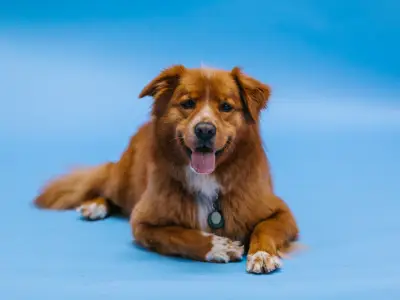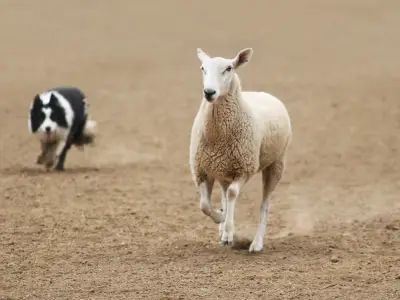There’s no question about it; puppies are adorable and bring a lot of joy to families all over the world. However, they also pose a lot of questions and concerns for first-time pet owners. From puppy training and feeding to health and general canine behaviour, there’s a lot to consider when you’re bringing up one of these pint-sized pooches.
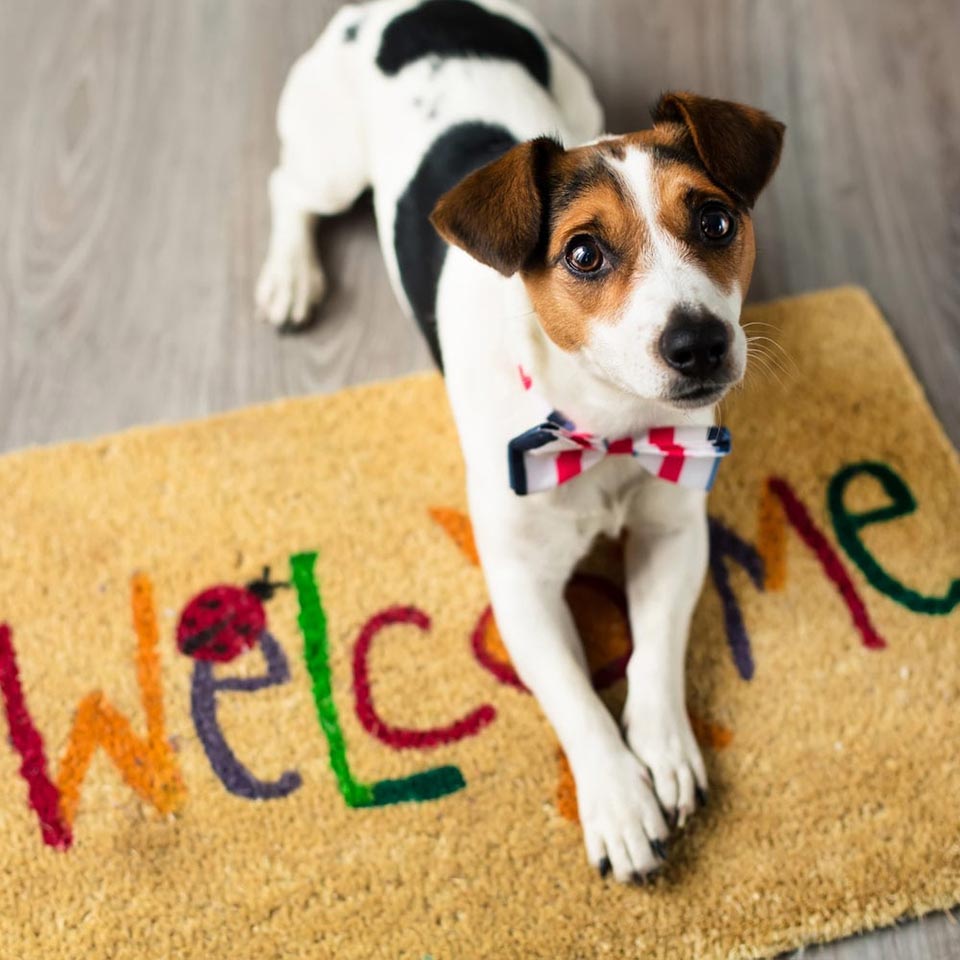
To help you get off to a good start, we’ve answered the UK most commonly-asked questions concerning puppy care.
How to Toilet Train a Puppy
Toilet training a puppy can be a challenge, but you can train them to go to the toilet outside if you approach it with patience and consistency. Here's a step-by-step guide:
- Create a designated potty area: Decide on a specific outdoor spot where you want your puppy to go to the toilet.
- Establish a routine: Feed your puppy at the same time every day. After each feed, immediately take them outside to the designated spot so they can relieve themselves.
- Correct their wrongs: Puppies don’t learn instantly. If they forget where their potty area is (and attempt to go indoors!), just lead them back to their designated spot.
- Reward good behaviour: Just like kids, puppies learn from positive reinforcement. Therefore, when your puppy successfully goes to the toilet outside, be sure to praise them (and maybe even give them a tasty treat) to reinforce their good behaviour.
Lastly, remember to be patient! Every puppy is different and some may take longer to toilet train than others. With patience, consistency, and positive reinforcement, you'll have a well-trained pup in no time!
How to Stop a Puppy from Biting
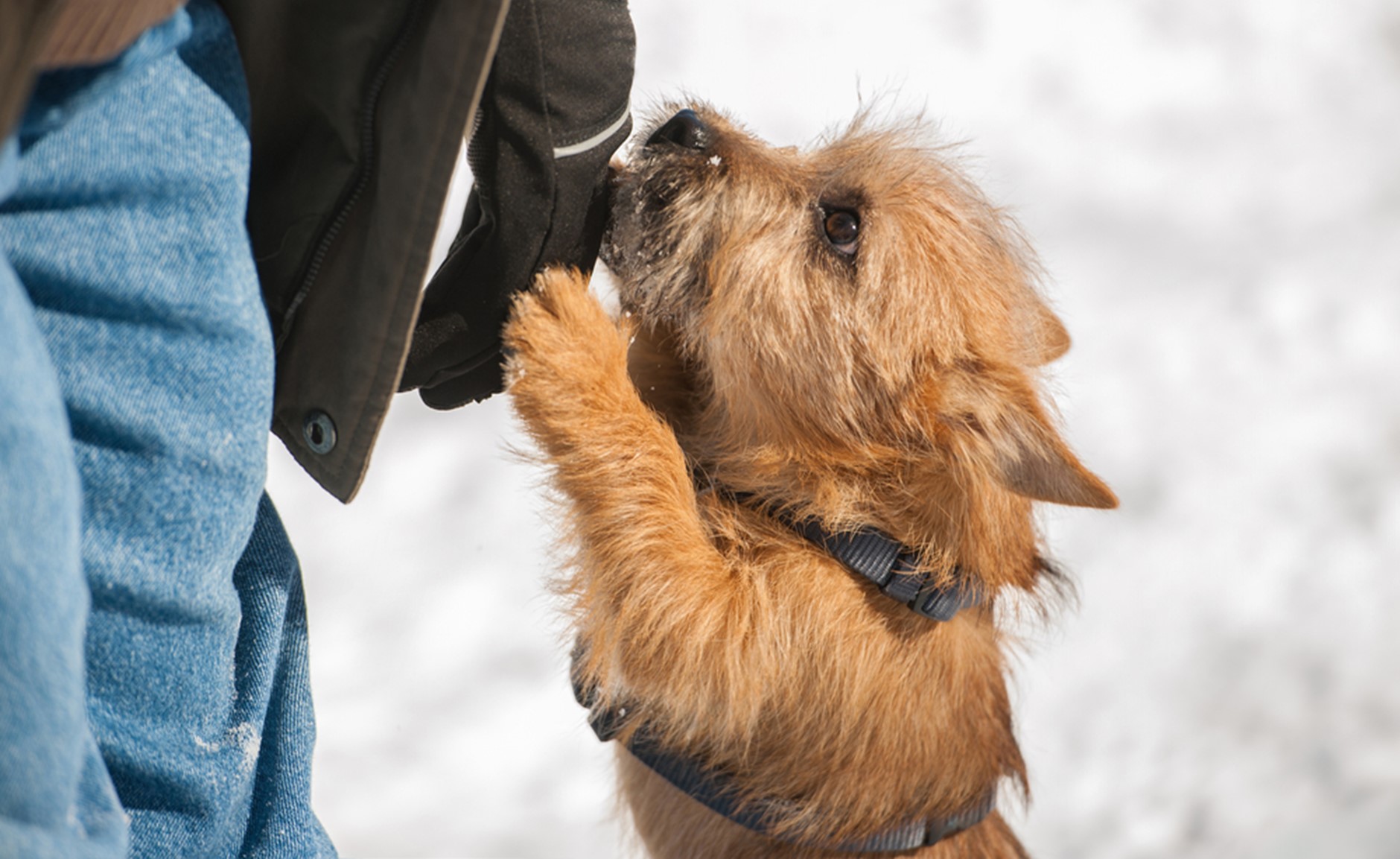
Puppies use their mouths to explore and play, and biting is normal behaviour for them. However, it's important to teach your puppy that biting anyone or anything is not acceptable. You’ll need to redirect their behaviour if they start to exhibit this trait too frequently, and it’s vital that you do so in their early years if you want to avoid incidents of biting in the future.
There are few things you can try:
- Redirect the biting: Offer the puppy a chew toy or a treat as an alternative to biting something that’s forbidden. This redirects their chewing and biting instincts to a more acceptable object.
- Use a firm tone: Without shouting or using an angry tone, firmly tell your puppy “NO BITING” (or a similar command that you prefer) when they bite something they shouldn’t. Dogs are intelligent and, although they do not understand us, using a firm tone will show them that biting is not acceptable.
- Use positive reinforcement: If a puppy listens to your command and stops biting, you can (and should) reward their good behaviour with cuddles and treats!
Remember to be patient and gentle with your puppy as you teach them new behaviours, and don’t feel too discouraged if it takes them a while to adjust to what you want them to do. Consistency and positive reinforcement are the key to successful training and, with time and patience, your puppy will learn not to bite out of turn. However, if their biting gets worse despite your best efforts, it’s a good idea to consult with a professional dog trainer or your veterinarian for advice.
When Do Puppies Stop Growing?
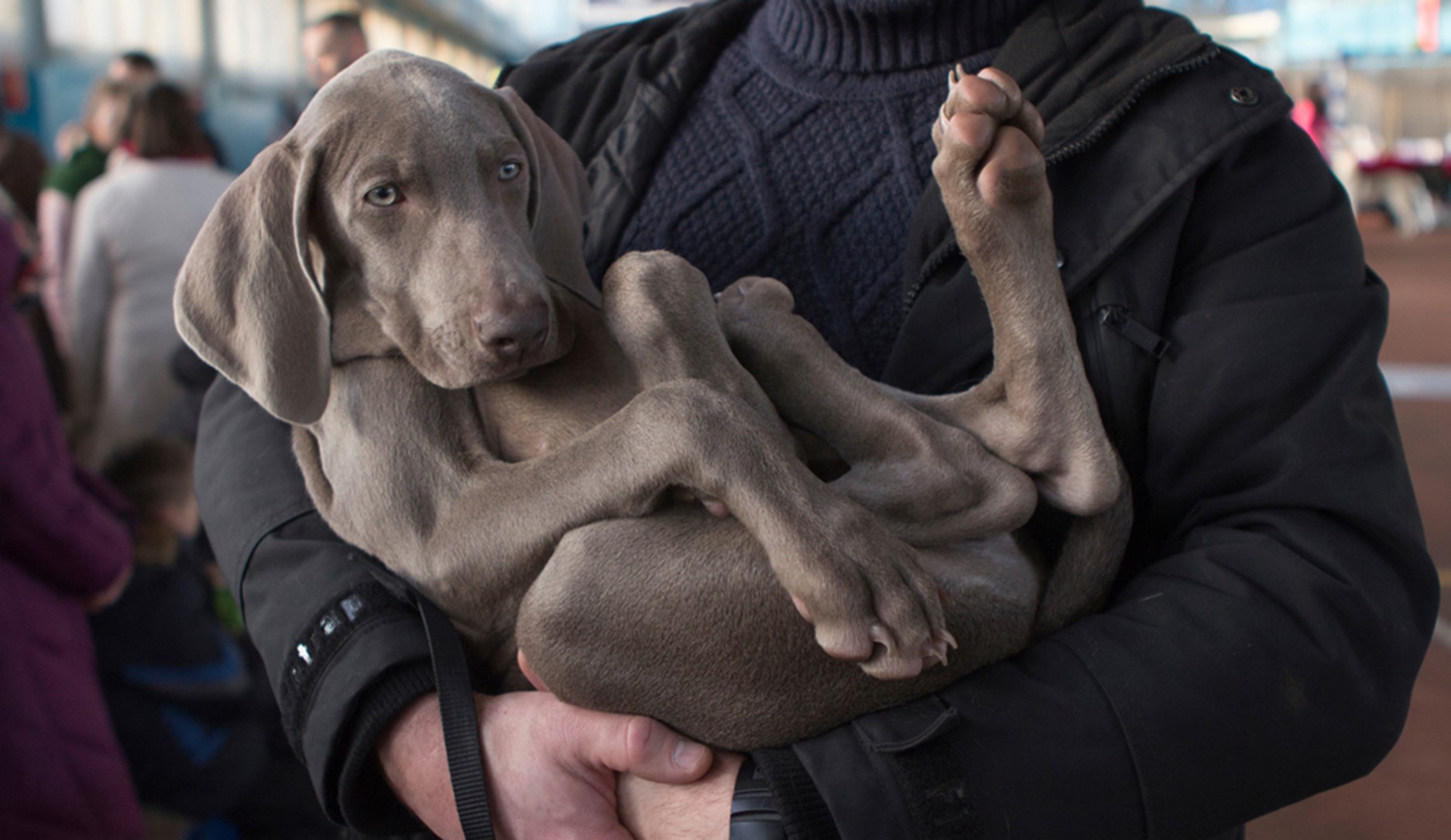
Puppies generally stop growing between 8 and 14 months of age, although the exact timeline can vary depending on the breed and individual dog. For example, smaller breeds tend to reach their full size and weight much quicker than larger breeds.
During the first few months of a puppy's life, they grow rapidly and gain weight quickly. However, growth rates tend to slow down as they approach adulthood. A 6-month old puppy will have reached about 75% of their adult height and 90% of their adult weight.
It's also important to monitor your puppy's growth and weight to ensure that they are developing at a healthy rate. Managing their feed is one way to ensure this. Overfeeding can lead to excessive weight gain, which can put stress on a puppy's developing bones and joints. Inversely, underfeeding can lead to stunted growth and other possible health problems, so you need to strike a balance.
How Much Should You Feed a Puppy?
Knowing how much to feed your puppy depends on several factors, including their breed, age, activity level and metabolism. It’s important to feed your puppy a balanced diet to ensure they are getting all the nutrients they need to to grow into healthy and strong adult dogs!
As a general rule, puppies below the age of 6 months should be fed three to four small meals a day. The reasons for multiple small servings throughout the day is because it eases their transition from mother’s milk to solid foods. As they grow up beyond 4 months old,
they can be fed two meals a day. The recommended portion size is usually 20g per 1 kg of body weight per day. You may find different portion sizes listed on dog food packaging, but it's always a good idea to consult with your veterinarian to determine the right amount for your individual pup!
As your puppy grows, you can then start transitioning to adult dog food. A great age for this transition is between the ages of 6 months to 12 months.
When Do Puppies Open Their Eyes?
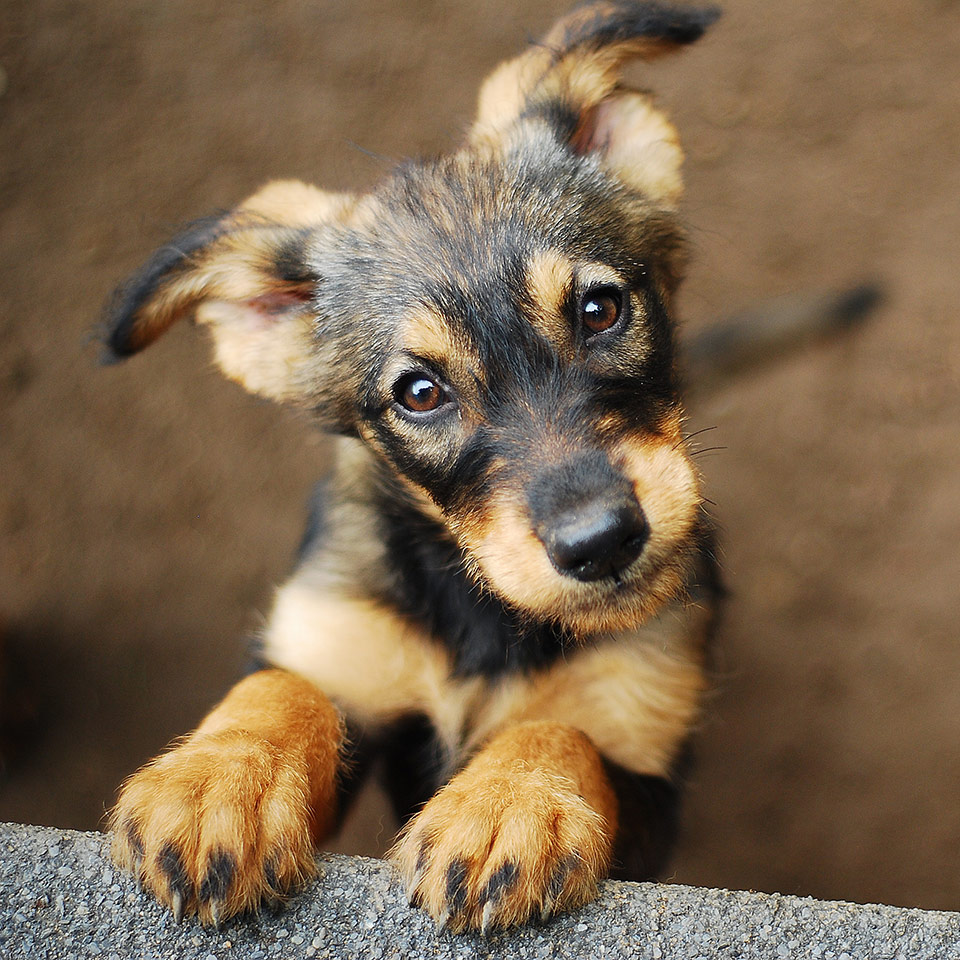
Puppies are born with their eyes closed and their ear canals sealed, meaning they solely rely on their sense of touch and smell to navigate their new world. Their eyes typically begin to open at around 10 to 14 days of age, although this can vary slightly depending on the breed.
At first, a puppy's eyes may appear bluish-grey in colour, which is quite common in newborn puppies. This is because their irises have not yet developed pigment. However, as they grow older (at about 16 weeks old), the puppy’s eyes will gradually develop into their natural colour.
Newborn puppies have extremely delicate and sensitive eyes, so be sure to keep the area around their eyes clean and free of discharge. You should also avoid exposing them to bright lights until their eyes are fully developed.
When Do Puppies Lose Their Teeth?
Puppies typically start losing their baby teeth (also known as deciduous or milk teeth) at around 3 to 4 months of age, and the process is usually completed by the time they are 7 months old.
Common signs of a teething puppy can include:
- Chewing on objects more frequently than usual
- Excessive drooling
- Noticeable bad breath
Again, as with young children, this teething process can be quite uncomfortable. One of the main things you can do to help ease their discomfort is to provide them with safe chewing toys that are specifically designed for teething purposes. This will help to manage their pain and soothe their gums.
How Long Do Puppies Sleep?
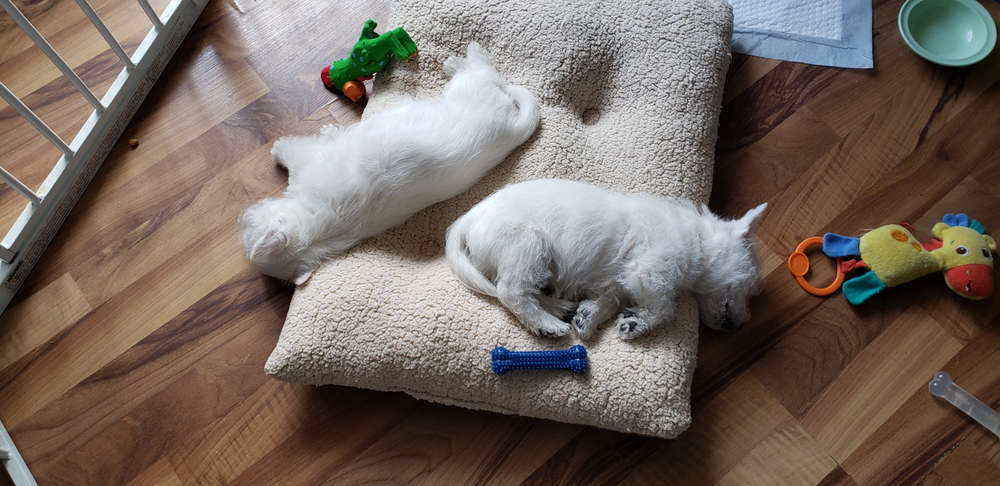
Puppies, like all baby animals, sleep a lot! In fact, they can sleep for up to 20 hours a day! The reason behind this extended siesta is that rest and sleep is vital for their growth and development. During their waking hours, puppies are usually high energy: playing, exploring and learning about the new world around them. As they begin to grow and mature into adult dogs, they will gradually start to sleep less and become active for more hours of the day, allowing you to enjoy their company for longer periods of time.
Each puppy is different, and some may sleep more (or less) than others. If you are ever concerned about your puppy’s sleeping habits, it’s best to consult a veterinarian.
When Can Puppies Go Outside?
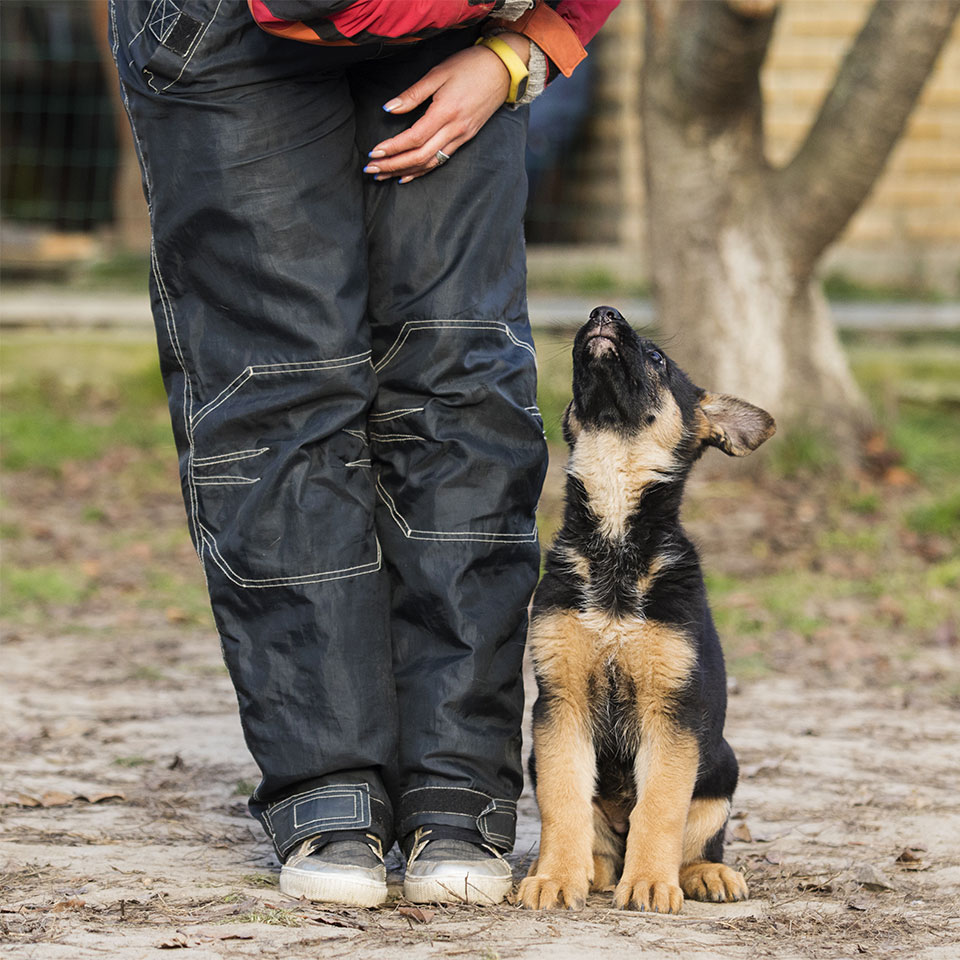
As an owner of a new puppy, you’ll probably be understandably eager to take them outside for walks, introduce them to family and friends, and to explore the world with them! However, it’s important to remember that puppies, just like babies, are extremely vulnerable in the first few weeks of their lives. Puppies have a much weaker immune system than adult dogs, making them more susceptible to diseases and infection.
Therefore, although puppies can start going on outdoor adventures from as early as 8 to 10 weeks of age, they should only be allowed to do so after they have been fully vaccinated. After 1-2 weeks following their second vaccination, they’ll be good to go and explore!
Once they are vaccinated and ready to go outside, it's best to keep their outings nice and short (and supervised). As the weeks go by, you can gradually start to increase the length and frequency of their outdoor excursions.
To help your puppy get used to different sights, sounds, and smells, you can take them to different environments, such as training them to walk on the pavement or letting them have a nose around local parks. This will also serve to develop your puppy’s social skills and prepare them for a lifetime of adventure!
It’s important to always supervise your puppy when they are outside, especially when they are young. We cannot stress this enough!
Why Do Puppies Eat Their Poop?
You may have noticed that your puppy has attempted to eat their faeces, and potentially been panicked by this behaviour! If that’s the case, you definitely aren’t alone, but there actually isn’t much need to be worried. Eating their own poop is common behaviour for puppies. The habit is believed to have originated thousands of years ago, back when dogs would eat their own faeces to prevent predators from locating their scent.
It’s also believed that puppies and full grown dogs eat their own poop to manage nutritional deficiencies. For example, if they are not getting enough necessary nutrients from their normal diet, they will try to supplement this by eating their own faeces.
Ideally, you should address this behaviour by trying the following:
- Clean up their poop as soon as possible to prevent them from accessing it.
- Ensure that your puppy is getting a well-balanced nutritional diet.
- Keep your puppy occupied with plenty of exercise and mental stimulation.
It’s important to note that this behaviour shouldn’t last for a significant period of time. Most puppies tend to grow out of it. If you’re concerned about your puppy’s health and behaviour in the long term, then you should consult your veterinarian or a dog nutritionist.
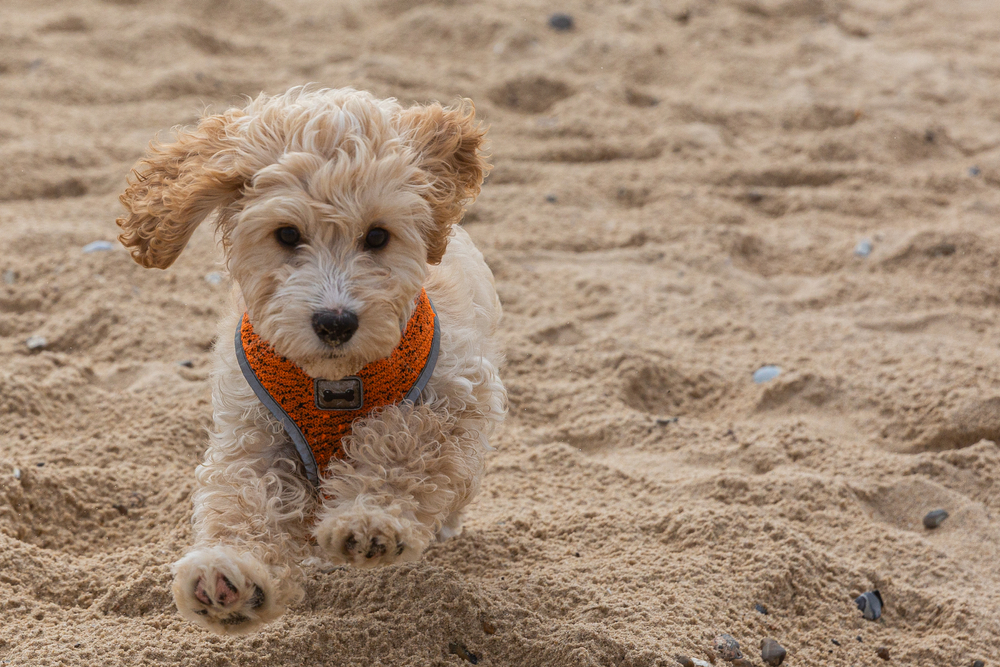
Owning a puppy can be a rewarding and joyful experience, but it also requires a lot of patience, attention, and care. By clearing common hurdles involving feeding, training, and canine behaviour as a new puppy owner, you can ensure that they are provided with the best possible care throughout their lives, setting them up for years of happiness and health!
Our Puppy Training Diploma Course and Dog Training Diploma Course are currently available for just £29 each for a limited time (reduced from £127 each).
Armed with the right knowledge and approach, you can build a strong bond with your puppy and help them to develop into a well-behaved, happy adult dog. Good luck on your puppy-raising journey!

